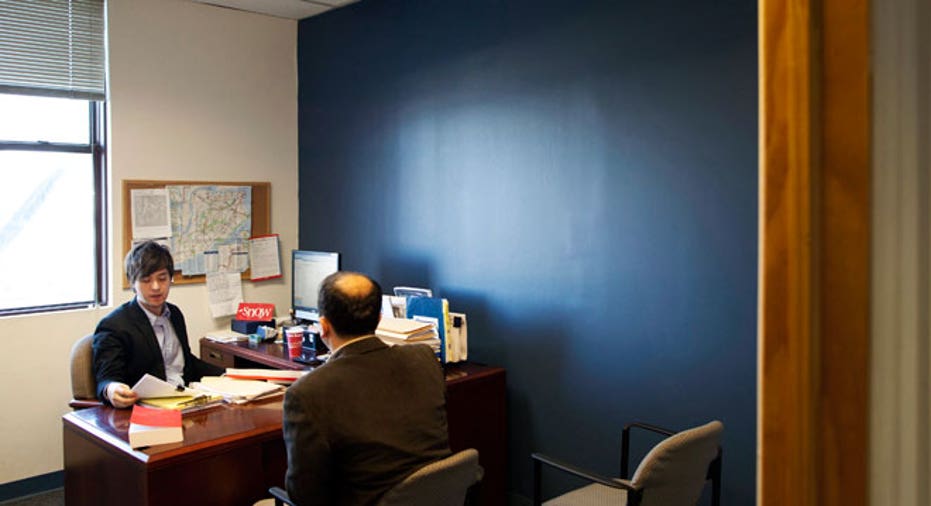5 Killer Lessons from Interviewing World-Class Entrepreneurs

But not only has this series of interviews given my followers plenty of inspirational material to help them take their businesses to the next level, it’s inspired me as well. Here are just a few of the lessons I’ve taken from these conversations and applied to my work at Growth Everywhere and my company, Single Grain.
1. Success comes from handling difficult situations well.
Want to hear something inspiring? When Ron Klein, inventor of the magnetic credit card strip, was 16, he contracted hepatitis and spent almost two years recovering. During this time, he wasn’t able to go to school or work, so he kept himself busy by reading 18 volumes of the Encyclopedia Britannica. While his reading didn’t directly contribute to his work with credit card strips, they do show how Klein was able to take what was a difficult situation and turn it into something positive.
Related: 3 Millionaire Entrepreneurs You Probably Haven't Heard Of (and How They Did It)
The truth is, we all hit roadblocks and obstacles. We all get frustrated by projects that don’t go as smoothly as we like. But it’s the way that you handle these challenges that separates those that will become successful from those that fail. Take a page out of Klein’s book and be the entrepreneur that makes the best out of bad situations.
2. Never be afraid to pivot.
All entrepreneurs think they’re starting out with a brilliant idea, but the reality is that businesses are often more complicated than they initially appear. Take the example of eToro, a social-investment network led by Yoni Assia.
Initially, eToro aimed to bring a social-gaming element to financial investing. But when the company’s first patent wound up being too over-gamified and over-simplified with consumers, the company was quick to pivot to a more traditional alternative, and then to a happy medium between the two. Today, eToro has produced more than $30 million in revenue, despite its rocky start.
If your initial idea proves unsustainable -- whether due to a lack of product-market fit, limited consumer interest, incorrect pricing strategies or some other factor -- don’t beat yourself up over it. Instead of giving up, look for the seeds of success that exist in all failed ideas and use them to move on to a stronger alternative.
3. Look for unexpected opportunities.
Yali Elkin was a pretty unlikely tech entrepreneur. Coming from a background in finance and data management, Elkin was inspired by the 2012 presidential debates to start LiveDial, a polling company that distributes surveys on any topic to an unlimited audience at a moment’s notice. To date, the program has more than 7,000 downloads and is growing every day.
It would have been easy for Elkin, when the idea for a survey platform crossed his mind, to say, “I’m a finance guy -- what business do I have founding a tech company?” But he didn’t. And you shouldn’t let yourself be tied down by expectations either.
Related: From Oprah to the Kardashians: 6 Celebrity-Inspired Business Lessons
Look for these types of unexpected opportunities and don’t let them pass you by. Capitalize on them by taking the action that other wannabe founders aren’t willing to.
4. Surround yourself with good people.
Recently, I had the chance to chat with Finnegan Faldi, founder of TruEffect, which focuses on first-party cookie technology. Faldi has a serious sales and business development background, so I was surprised when he told me that he doesn’t just believe CEOs should spend 25 to 33 percent of their time recruiting, he believes it should always be a top priority. Instead of posting jobs when he has open positions, he wants to have eager applicants who are ready, waiting and excited to work for him.
I’ve talked about what it takes to find a good CMO before, but don’t limit yourself there. Every position at your company is critical, so follow Faldi’s example and make constant recruiting a priority. A good team can make the difference between a company that barely gets off the ground and one that’s a runaway success.
5. All you have to do is ask.
While I’ve been fortunate to be able to connect with some amazing entrepreneurs through my interview series, what I want to emphasize is that there’s nothing special about me. I don’t have tons of inside connections, and I haven’t yet been admitted into any super-secret business-owner societies (if these exist at all).
I was able to learn great lessons that will save me a significant amount of time, money and energy, all because I was willing to ask for it. I get told “no” plenty of times by prospective interview subjects, but because I’m persistent, I’m able to chat with fascinating people doing amazing things in the business world. If there’s something you want out there, ask for it. Even seemingly-impossible requests might be easier to fulfill than you’d imagine.
Related: Even With 20 Years in Tech I Learned These Lessons as a First-Time CEO
This article originally appeared at Entrepreneur. Copyright 2014.



















